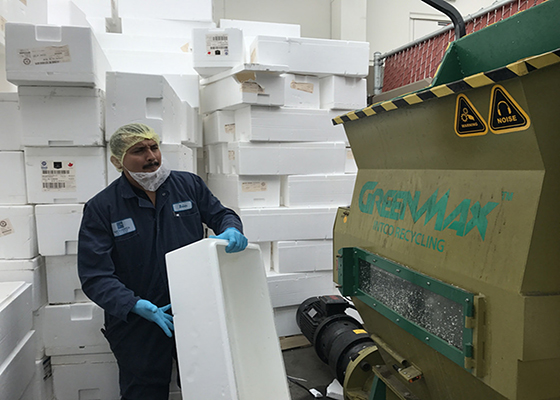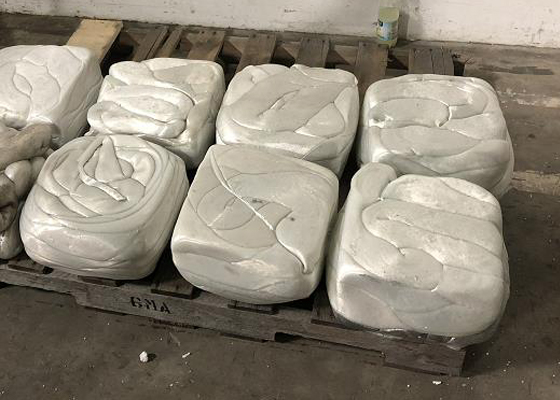With the rapid development of carry-out and delivery food service, more and more foam plastic containers have been adopted in the dining field. Especially during the COVID-19 period, delivery service covers more than 3,000 cities in the USA, and the statistic of orders rockets up. Although the wide adoption of foam containers brings more convenience for both customers and merchants, the hazardous influence on us shouldn’t be neglected.
Negative Effects of Waste Foam without Proper Recycling
Styrofoam is one of the most environmentally unfriendly types of waste that exist today.
a. Non-Biodegradable Pollutant
According to experts’ estimation, foam needs at least 500 years to be decomposed. And it creates toxic chemicals and air pollutants when heated or exposed to sunlight.
b. Adverse Impacts on Landfill and Animals
By volume, Styrofoam products fill up 25 to 30 percent of landfill space around the world. And foam products are easily swallowed by animals, then making it a choking hazard.
Tim Erhart states, who is a member of the Sustainability Activation Programs within the Hanley Sustainability Institute, many single-use foam containers are improperly recycled, which end up in the ocean and harm wildlife, some related projects are in urgent need to make the community more aware of the environmental impact of reusing,
The Actions Taken
Scientists and officials pay more attention to this problem and citizen’s environmental awareness has also been raised. Some states in the USA, such as Coronado, Washington have already taken further actions to limit the usage of plastic foam containers. Recently, a bill of Virginia that prohibits food vendors from using plastic foam containers is also up in the air.
Different Voices
Small business owners like Petersen expressed their dissatisfaction with the bill. The Virginia Restaurant, Lodging & Travel Association, an organization for restaurants and other hospitality industries, also opposes the ban. Robert Melvin, director of government affairs at the association, said the bill is “misguided” and will hurt smaller, local restaurants financially.
Another Ideal Choice
No doubt ban the use of foam products is not a perfect solution. Instead of the foam container prohibition, collecting, recycling, and reusing them may be wiser. By using a professional foam densifier, foam containers can be compressed and finally to be transformed into other new products such as frames and other architecture materials, which not only reduce the environmental problems but also gain more financial profits.
The technology already becomes mature and keeps improving steadily. INTCO Recycling carries out the duty to eliminate the unnecessary pollution caused by foam disposals. INTCO provides Greenmax, a high-quality foam densifier that specializing in recycling foam, making the obligation come true.
If the foam densifier can be widely adopted in more industries, it can substitute for the foam container ban and bring more convenience and economical returns to small businesses, meanwhile, protect our environment.


